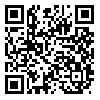BibTeX | RIS | EndNote | Medlars | ProCite | Reference Manager | RefWorks
Send citation to:
URL: http://ijn.iums.ac.ir/article-1-1612-en.html
2- Associate Professor, Management Dept, Faculty of Administrative Sciences and Economics, Ferdosi University of Mashhad, Mashhad, Iran
3- M.A in Business Administration, Faculty of Administrative Sciences and Economics, Ferdosi University of Mashhad, Mashhad, Iran, (Corresponding Author) Tel: +98- 0- 9153237646 E.mail: samirahosseini90@yahoo.com).
Abstract
Background & Aims: Leader- member quality of relationship is essentially important because it can incredibly change staff emotions and behaviors. The aim of this study was to determine the effect of leader- member exchange and envy on the knowledge sharing and uncivil behaviors of nurses working in Ghaem hospital of Mashhad city.
Material & Methods: It was a survey analysis based on structured equation modelling. Questionnaire was used in order to collect related data (n=110).To collect data related to envy, the quality of leader-member exchange, uncivil behaviors, and knowledge sharing, Vecchio questionnaire, Van Yperen& Janssen questionnaire, Cortina, Magley, Williams &Langhout questionnaire and Lee questionnaire was used respectively.The validity of the questionnaires was assessed by Confirmatory Factor Analysis and Cronbach’s Alpha coefficient verified their reliability using SPSS-PC (v.18). Lisrel software based on Structural Equation Modelling method was used to analyze data and testing hypotheses.
Results: The results of the study showed that, all the direct and indirect relationships between model variables are statistically significant except the direct relationship between envy and uncivil behaviors, since the Regression Coefficient is negative (P1 , P2 , P3 : 0/000). The mediating effect of envy in the relationship between leader- member exchange and knowledge sharing, leader- member exchange and uncivil behaviors was also confirmed (P4 : 0/003& P5 : 0/043).
Conclusion: Not only the knowledge sharing and uncivil behaviors are affected by the leader- member exchange, but also decreasing of envy has a positive effect on the growth of knowledge sharing and the reduction of uncivil behaviors.
Received: 3 Jun 2013
Accepted: 7 Sep 2013
Received: 2014/02/17 | Accepted: 2014/02/17 | Published: 2014/02/17
| Rights and permissions | |
 |
This work is licensed under a Creative Commons Attribution-NonCommercial 4.0 International License. |




